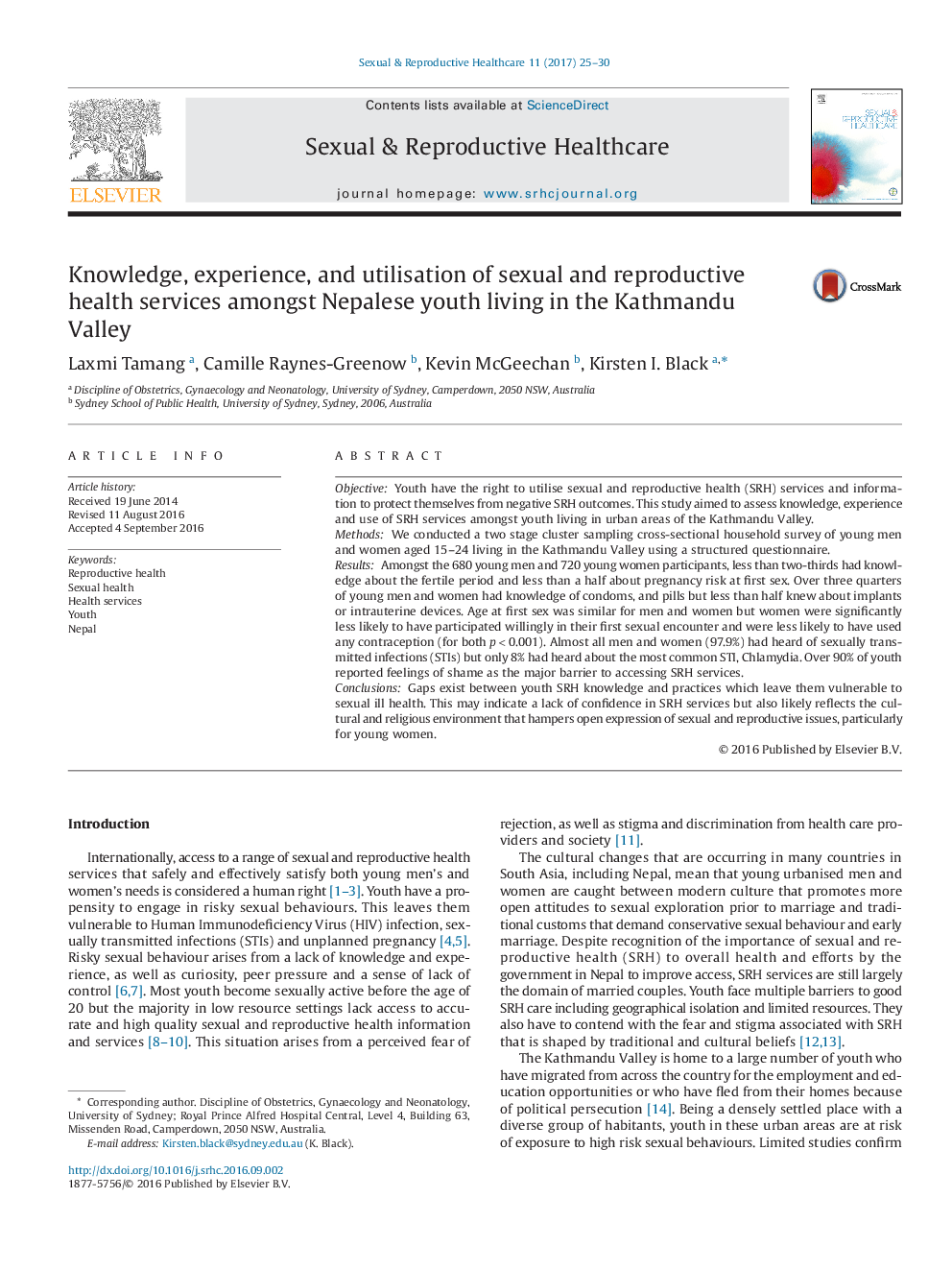| کد مقاله | کد نشریه | سال انتشار | مقاله انگلیسی | نسخه تمام متن |
|---|---|---|---|---|
| 5866103 | 1563307 | 2017 | 6 صفحه PDF | دانلود رایگان |
- Less than a third of youth aged 15-24 had knowledge of the most fertile period and under a half of the possibility of pregnancy at first intercourse.
- Women were less likely than men to have used any contraceptive at their first sexual encounter.
- Fewer than one in ten young people had knowledge about the most common STI, Chlamydia.
- Feelings of shame are the major barrier to accessing sexual and reproductive health services.
ObjectiveYouth have the right to utilise sexual and reproductive health (SRH) services and information to protect themselves from negative SRH outcomes. This study aimed to assess knowledge, experience and use of SRH services amongst youth living in urban areas of the Kathmandu Valley.MethodsWe conducted a two stage cluster sampling cross-sectional household survey of young men and women aged 15-24 living in the Kathmandu Valley using a structured questionnaire.ResultsAmongst the 680 young men and 720 young women participants, less than two-thirds had knowledge about the fertile period and less than a half about pregnancy risk at first sex. Over three quarters of young men and women had knowledge of condoms, and pills but less than half knew about implants or intrauterine devices. Age at first sex was similar for men and women but women were significantly less likely to have participated willingly in their first sexual encounter and were less likely to have used any contraception (for both pâ<â0.001). Almost all men and women (97.9%) had heard of sexually transmitted infections (STIs) but only 8% had heard about the most common STI, Chlamydia. Over 90% of youth reported feelings of shame as the major barrier to accessing SRH services.ConclusionsGaps exist between youth SRH knowledge and practices which leave them vulnerable to sexual ill health. This may indicate a lack of confidence in SRH services but also likely reflects the cultural and religious environment that hampers open expression of sexual and reproductive issues, particularly for young women.
Journal: Sexual & Reproductive Healthcare - Volume 11, March 2017, Pages 25-30
